Have you ever dreamed of having the freedom to live wherever you’d like? Have you thought about moving to a warmer/cheaper/bigger/smaller town or city? Have you dreamed of being able to travel for longer than two weeks a year with your entire family?
Our family is pursuing a dream to become location independent, in order to be able to be closer to our families who live on two different continents, enjoy warmer weather than we currently do in New Hampshire, and travel for longer stretches of time.
For the last year and a half, we’ve been exploring ways to make that dream come true. We’re investigating overseas employment options. We’re saving and investing in order to double our net worth. We’re looking into non-traditional work arrangements.
What is location independence?
Location independence is a term used to describe a lifestyle in which you’re not tied to one location. You are free to travel for long stretches of time, if you so desire. You’re not tied to a place because of your job. You don’t have work obligations that mean you need to report to an office each day. You may live in one city, but you’re free to choose that city. You’re able to practice geographical arbitrage, and live in a region of your country or the world that costs less.
It’s generally a term that’s used when people are still working, and haven’t yet reached financial independence, but because of the way they’ve structured their lives, they’re able to work from anywhere, or almost anywhere. Location independence for families is building a lifestyle where your entire family can come with you. Whether you’re a family of 2, 5, or 25, location independence can work for a family, but extra planning IS required.
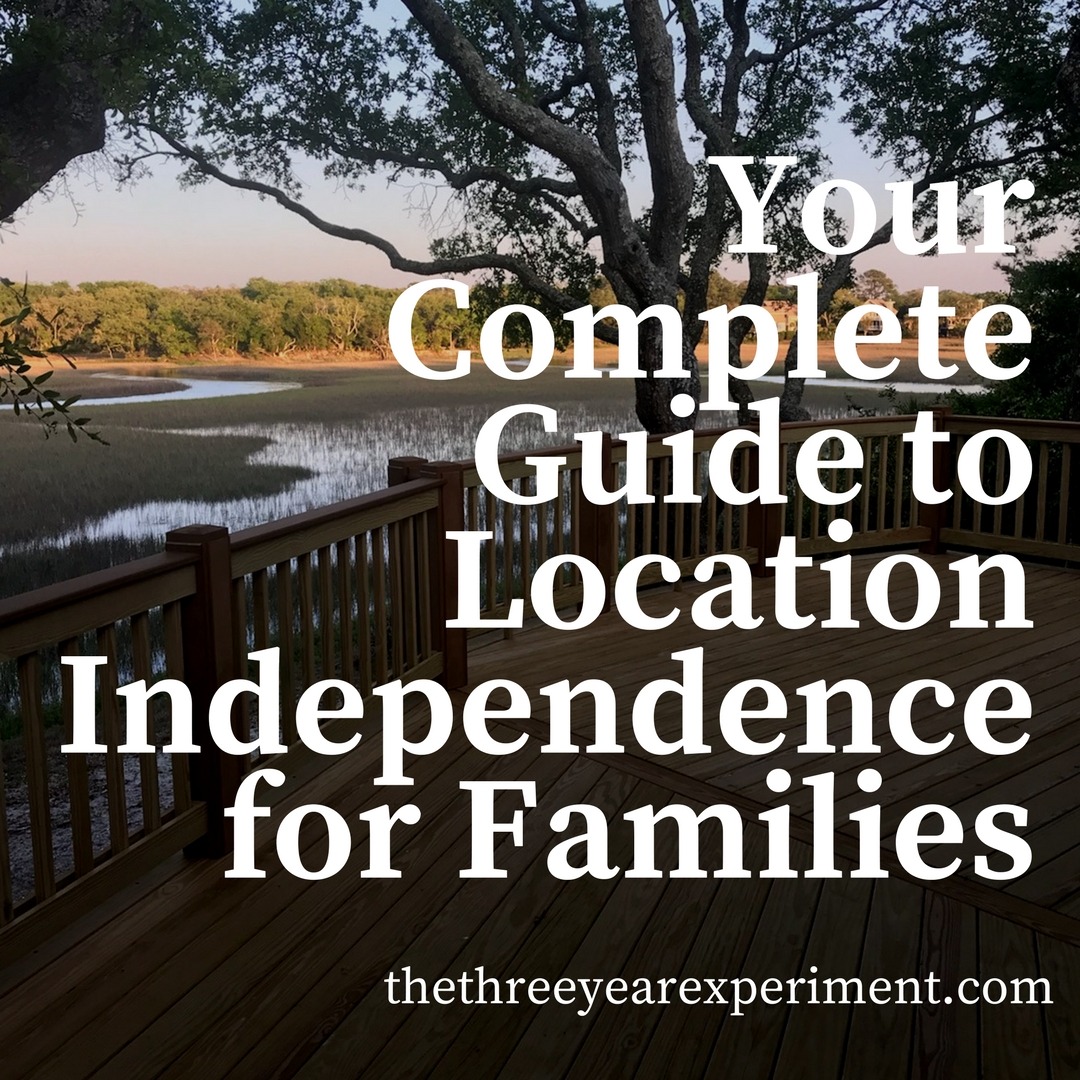
Because of the nature of employment today, many people can make a living using their laptops or online. Countless freelancers, bloggers, coders, programmers, graphic designers, writers, and even educators are able to work remotely and interface with their employers, customers, or both through emails and video chats.
Is Being Location Independent the Same as Being a Digital Nomad?
There’s an important distinction between being location independent and being a digital nomad. The word “nomad” implies that you’re constantly moving from place to place, while someone who’s location independent is likely to have a home base and to travel for long stretches at a time before returning to their home. This travel blogger beautifully describes the difference between being location independent and being a digital nomad. She writes:
“To me, the word nomad implies continual, frequent movement, without any one place that ever truly feels like “home.” My goal, on the other hand, is to have a base (or two) and still have the freedom to travel when I please, whether that means a month in Mexico or a weekend in a neighboring city, without compromising my ability to continue to work and earn a living. “
This can be really hard for families, especially when kids hit school age. Our family, while we love to travel, is not interested in a nomadic lifestyle, especially in the long term. We might take a months-long or year-long trip around the world, but we’d never travel continuously, for years at a time. We enjoy the feeling of being deeply rooted in a community and of having routines and traditions too much to want that kind of lifestyle.
What will location independence look like for your family?
If you’re thinking about making changes in your life and work in order to become location independent, it’s important to first think about how you’d like your family’s life to look.
Begin with the end in mind, as they say.
How long do you want to be location independent? For a few months? Forever?
Do you want to travel the world for a certain amount of time and live off freelance income?
Are you interested in making less money go farther in another part of the world, otherwise known as geographical arbitrage? Your $1000 per month will allow your family to live like relative kings in Vietnam.
Would you like to find a work situation that allows you to live in a different part of the country, work remotely while traveling abroad, and otherwise have the freedom to not be tied to one specific town or region?
Does your family want to travel? For how long? Are you willing to live off assets and forgo work temporarily? Are you interested in a permanent move to a different place?
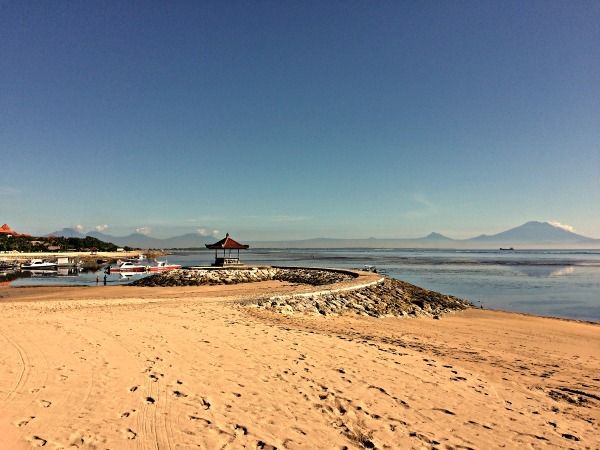
You might not have any clear ideas of exactly how your family’s life might look after location independence, or you might have a crystal clear vision for your future.
Either way, Step 1 is to decide what you’d like to change.
For our family, that decision was that my husband and I were no longer tied to jobs that required us to continue to live in New Hampshire. New Hampshire, while replete with charm, has a particular combination of characteristics that make it a less-than-ideal place to live for us:
1. Winters last up to 7 months out of the year. 2. We are far away from both sides of our family. 3. It is difficult to make close, warm friendships here. People tend to hibernate in the winters, and we are much more interested in participating in a more active community.
We didn’t know, as we embarked upon our experiment, how exactly we’d resolve these issues, but we did know that we wanted to be closer to both sides of our family (who live in North/South Carolina and Santiago, Chile). We wanted to be part of a warm, close-knit community. We wanted warmer weather. We wanted the ability to travel for longer stretches of time than the three weeks we normally travel.
Maybe you’d love to move out of the country for a short time or forever. You might want to move closer to family. You might want to stay put, but be able to spend summers in another place. You might want to live half the year in one location and half in another.
Sit down and have some long heart-to-hearts with your significant other. Be prepared for a lot of question marks, especially at first. Write down what your ideal life might look like. Write down lists of what you really want, and be as specific or general as you want (“I want a pair of Christian Louboutins. I want world peace”).

Allow yourself to dream as you talk and write. Accept the fact that a lot of what you propose and plan will be thrown out for one reason or another. That doesn’t make it wrong or worthless. Working through your ideas and feelings is part of the process of figuring out what you really want.
Give yourself time. Change doesn’t happen overnight. But keep asking the questions. Keep pressing, and thinking, and dreaming. Gradually, an idea will take shape, or you’ll come up with an out-of-the-box work solution that you never thought of before. First, and most importantly, figure out the what (and behind that, the why). The hows can come later.
Related Reading:
- Why Location Independence is Important to Us: a breakdown of our “what” behind our three year experiment
- My Inspirations for Location Independence: a couple of successful bloggers and people I’ve met who have planted seeds about how I’d like my life to look
- International Jobs Series: take a peak at how people I’ve interviewed have made location independence or living abroad work for their particular circumstances
How will you fund your family’s location independence?
Speaking of “hows”… for many of us who are planning to become location independent, funding that change is our #1 concern. When you have an idea how your location independence will look, the next step is thinking about how you’ll fund it.
Do you need money for the short-term or long-term? Do you want to stick with the same career or start a different one? Do you want to be self-employed or work for someone else’s company?
Working Remotely
There are many professionals who work for Fortune 500 companies who work remotely. There are some big benefits both for companies and employees with this type of setup. For companies, benefits include employees who tend to work more hours and have increased productivity. They need to provide less office space and food facilities which means less rent paid. They can attract a higher caliber of employee since they can recruit country-wide and don’t have to pay massive relocation costs. For employees, the benefits include less money spent on lunches out, less commute time, and more flexibility with working hours.
If you’re working remotely, even if you’re tied to a particular country or region, you can often stretch your vacation days. For example, you could take your two or three weeks of vacation in a foreign country, and then work remotely for an extra week to give yourself more time in that area. You could even stretch that time to six or seven weeks, even if you’re working part of that time. That would give you and your family more time to wander the streets of your adopted city during the evenings and try out delicious local food for lunch and dinner, around your work schedule.
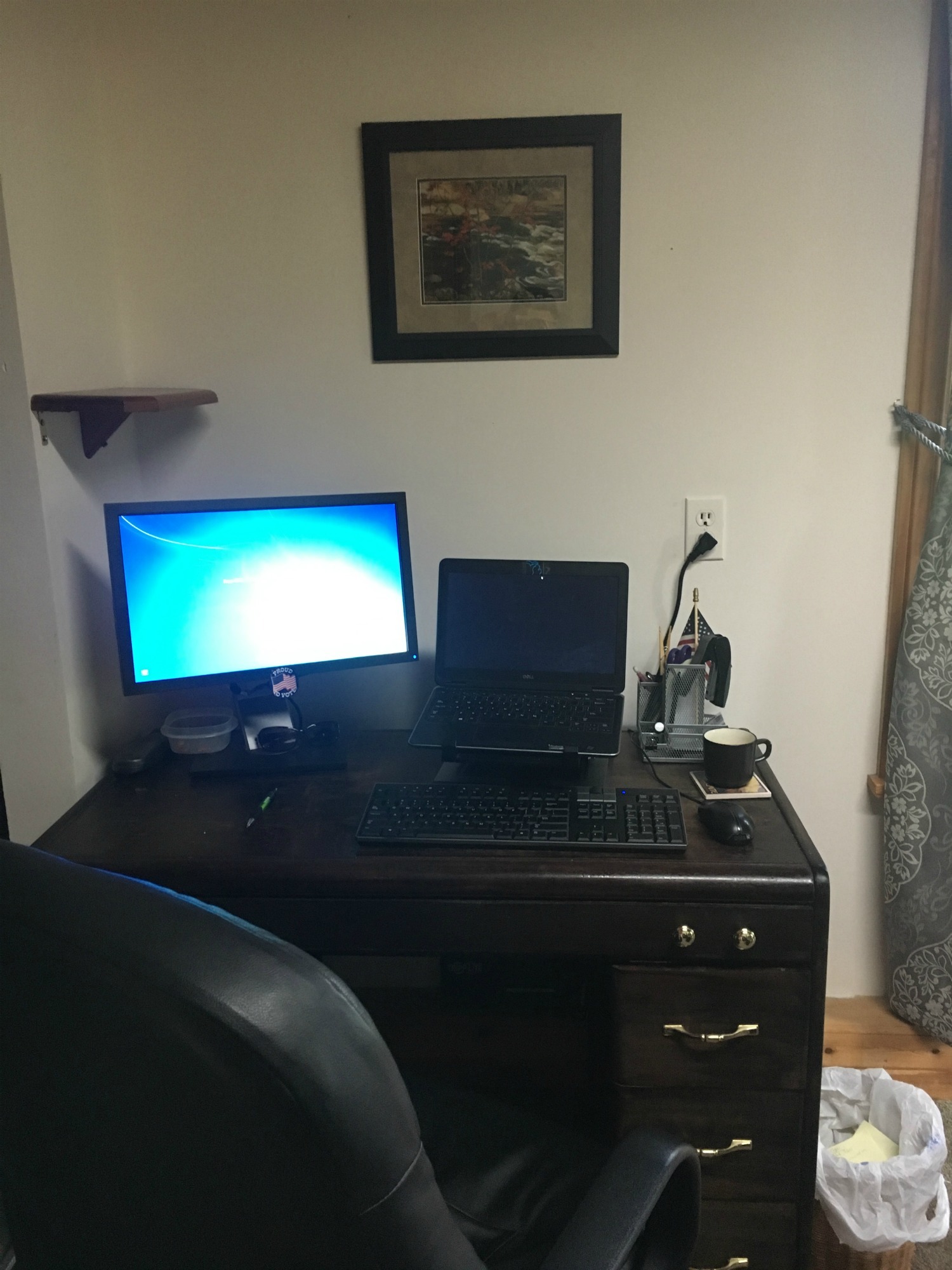
Working for yourself
There are also many people who are location independent who have created online businesses. They’re able work, as long as they’re in a place with a good internet connection, from virtually anywhere.
When people think about location independence, this is often the vision that comes to mind: a travel blogger who spends months at a time in a certain country before moving on to another one. Serial entrepreneur Stephanie Langford, founder of the website EntreFamily, her husband, and five kids spend big chunks of time in foreign countries (they homeschool) and she and her husband work from the road. (Follow them on Instagram. You won’t regret it).
Freelancing
If you’re a writer, English teacher, programmer, or one of thousands of other professions where you can work online, you could start a freelance side hustle. You can begin to build up your client base, slowly over time, until you’re comfortable with the level of income you’re earning. Then you’ll be free to leave more traditional full-time employment. Careful, though: freelance income is often quite varied, so it would be wise to save up a cash cushion before you hand in your notice.

There are many sites where you can teach English online, find freelance writing jobs, or find other freelance work. But remember: you’ll probably need to pay quarterly taxes (don’t forget to save for this!) and fund your family’s healthcare and retirement. It’s probably a wise idea to test this arrangement out and see if you can all live on your (or your and your partner’s) freelance income before resigning and moving.
Family considerations
When you’re considering location independence with a family, things get a bit more complicated. First of all, if you have school-age kids, you have to figure out how they’ll participate in school.
Education
Luckily, nowadays there are myriad options (and most of them are socially accepted, which is helpful) for educating your children. If you’re planning an around-the-world trip, you could consider homeschooling them for that time. In the US, each state has an online learning program they use that you can sign up for, free of charge. These “virtual academies,” as they’re commonly called, allow your child to watch videos of teachers giving lessons, and then submit assignments and comment on classmates’ work online. Grades are given and teachers expect assignments at certain times. These online learning options have a much more “traditional school” feel.

You could also consider homeschooling using books or programs you can buy online. There are many websites available that outline pros and cons of different curricula options.
If you’re moving to a set location, you’ll probably be picking that spot based in part upon the quality of the schools. You have the opportunity to choose an area with excellent schools, if that’s important to your family. Greatschools is a fantastic site for finding well-ranked schools across the US.
Healthcare
Healthcare, in the US anyway, is a huge component of becoming location independent.
If you decide to work remotely for a current employer, you probably have pretty good healthcare options.
What, however, if you decide to become self-employed or are a freelancer? Healthcare can be prohibitively expensive in those situations.
The Affordable Care Act can offer healthcare plans for you and/or your spouse or family, but costs have increased substantially in the last few years. My friend, who’s husband just retired, is paying around $1300 per month in New Hampshire for herself and her two kids.
This Health Insurance Marketplace Calculator can help you figure out what your premiums would be based on your expected annual income and state of residence. In my state, for example, if my family of four earned $50,000 per year, we would qualify for $269/month for a silver plan. If we earned $80,000, we’d pay $637 per month. If we earned $100,000, though, which would put us just outside of the 400% over the poverty line that would qualify us for a subsidy, our cost would be the full $1,550 per month in premiums.
There are other options available, such as health shares (although they sometimes require you to belong to a particular religion). Some states offer free or low-cost healthcare to residents who earn lower incomes. These plans can even cost dental insurance. Your coverage will depend on your state and your income, though.
If you’re planning on living abroad, you may consider paying out of pocket for healthcare costs. You’d probably want to have a large fund set aside for any health emergencies, but in general, healthcare costs are much lower in regions like Latin America and Southeast Asia. When Mr. ThreeYear and I were in Bangkok, they offered excellent healthcare that many people from developed countries flew over to take advantage of, including dentistry and cosmetic procedures.

It’s important to explore all your healthcare options and also think creatively about healthcare. You do not want to forget to plan for this expense, nor do you want to go without coverage in a country like the US, where a major medical expense could bankrupt you.
College
College has been a major consideration for our family as we make our location independence plans and it’s important to plan for and think about. We know we need to make enough income to fund our two boys’ college accounts. We’d also like to make sure we fulfill the residency requirements for certain in-state universities in the US. Normally, you have to prove to the schools that your family has been living full-time in that particular state for two years or more in order to qualify for in-state tuition, which is typically significantly less expensive than out-of-state tuition. The thinking is, if you’ve been living in the state for at least two years, you’ve paid taxes into the state and therefore qualify for the state benefit of reduced tuition costs.

In the past, Mr. ThreeYear and I have discussed moving to a country where the kids could get a free college education. Germany and Norway are two of several European countries where American students can attend for free. Many of their classes are in English, so hypothetically you could graduate with a prestigious degree only speaking English.
In Chile, college degrees are much cheaper than the US. We’ve been worried about the lack of international prestige their undergraduate degrees might hold, though, and they’d need to be fluent in Spanish to make this work (they’re not even close, currently).
College costs keep rising in the US, but there are alternative options. Read this post for more info.
Related Reading:
- The Best Advice I Know for Location Independence: these are some crucial tips for your journey to LI.
- How We Are Moving Toward Location Independence: This guest post on Keep Thrifty shares our overall plan.
- Why Location Independence Might Make Sense Even if You Don’t Want to Travel: Here is a list of great reasons to consider a flexible work situation that has nothing to do with travel!
Trade Offs
Life, unfortunately, is about trade-offs. If you spend money on this, there’s less money for that. If you use your time to pursue this, there’s less time to pursue that.
As you’re thinking about location independence, it’s important to keep the trade-offs in mind that you’re making.
If you take on a remote position at your company, you may take yourself out of consideration for a higher role in the company. If you become a freelancer, you give up a steady paycheck and benefits. If you make the decision to move your family to one city, you’re giving up the possibilities of a life in thousands of others.
In other words, there are lots of rosy Instagram-able moments that may be dancing through our heads, but life is life is life. We’ll be living and working in a slightly different way, and in a different place, but we’ll still be forced to confront challenges and constraints as we have been in the current iteration of our lives.

How to get from dream to reality
So you’ve figured out what you want, explored the hows to make that happen, but there’s still the steps you need to take to get from dream to reality.
Since there are roughly a gazillion versions of location independence, let’s go through the steps the ThreeYears have taken as we march toward our goal:
- We decided what we wanted (sort-of). Less cold weather, more family, more job flexibility, more travel.
- We set a timeline and a goal. We knew we wanted to become location independent in 3 years, and we knew that regardless of how our employment options worked out, it was important to us to double our net worth, so that we could have a substantial nest egg in place for the next stage in our lives.
- We told people. This is not necessary for everyone, and you probably need to be careful about who you tell (your boss, if you’re planning to leave your job, for example). But having trusted friends and loved ones gradually get used to our plan and give us ideas for how to make it reality helped us.
- We killed our debt. We became debt-free for the first time in 2009, but when we bought a house in New Hampshire, we took on car payments. Last year, we paid those off and paid off our apartment in Chile.
- We increased our investments and created a taxable fund.
- We took trips. This might seem counter productive, but every time we got out of our normal routine and surroundings, we started to see things differently. On our most recent trip to Chile, after staying in a small apartment, we realized we could sell our house and rent something smaller, which would significantly reduce our housing costs and help us increase our net worth faster.
- We discussed where we wanted to go and began to think about work options for those areas.
We still have a little more than a year and a half to go until our three year experiment has ended, but we’re already seeing the fruits of some of the changes in our life.
Our spending is more in line with our values, since we took the time to figure out what was really important to us (and what wasn’t, like a big house). We’ve taken more risks and asked for things that may have scared us in the past.
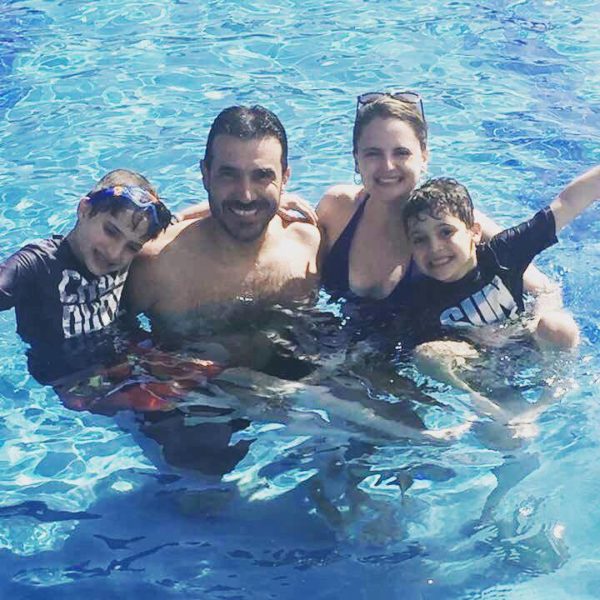
We’re traveling more, even in the midst of lots of saving, because traveling is our favorite thing to do together as a family. We’ll keep you posted as we get closer to our goals!
Deciding to become location independent is not an easy decision by any means, but it’s definitely worthwhile, and brings a lot of advantages. I hope this guide has got you thinking about how location independence might work for you!

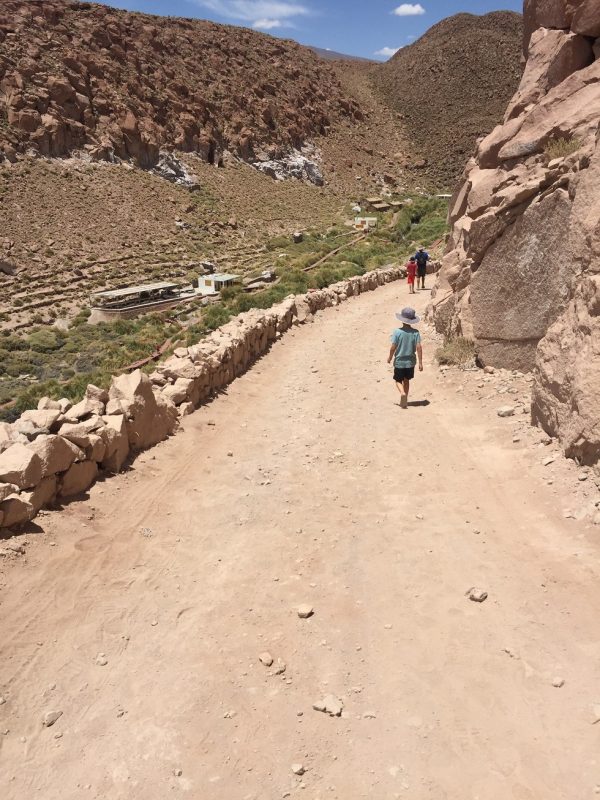

nice post, can’t wait to see where you call home base… i’m looking to find a home base in the US that’s more FIRE budget friendly…but i need to be more patient in the journey…i want to know where my home base is yesterday!
Thanks!! Patience is definitely my weak point too! 🙂 The Southeast and Southwest definitely tend to be more budget friendly with nicer weather. That’s always a plus!! 🙂
I didn’t know that about Germany and Norway. Do they really give free colleges for children foreign born? Holy moly that’s a hack if it applies in 10-30 years (I doubt in 30 haha).
Holy dear god, how did he get his little foot into the jar in the first place?! How long before it came out?
Isn’t that crazy? It’s like the best-kept secret. I think one of the countries may start charging tuition for US residents–a whole $1350 a year. 🙂
Oh, the pretzel picture. I wish I could say that was an unusual occurrence, but it’s pretty regular around here. There were some dramatic screams and then we were all good! Little feet are flexible, thank goodness!
So cool reading this and finding a picture of…me and my laptop:). I LOVE knowing my business is location-independent even if I tend to stay put for long stretches. Thanks for all the information and resources, as always, Laurie!
Ha! It’s a great picture of you. 🙂 I agree–you have a really cool setup!
Great post! I especially love the foot in the pretzel jar comment, and photo. You can’t make that stuff up! Kids will keep it interesting no matter where we are. 🙂
Thanks Sarah! Isn’t that the truth?! They’ll also keep you humble, which is such a good thing. 🙂